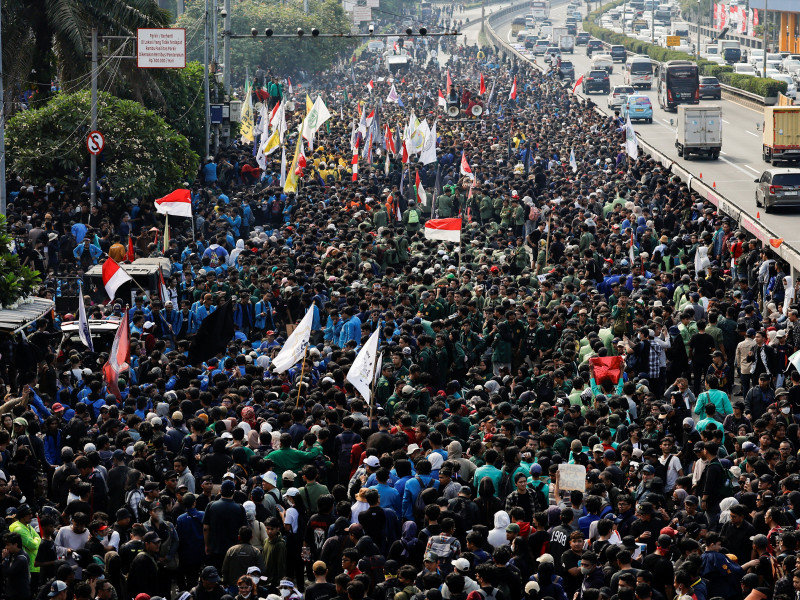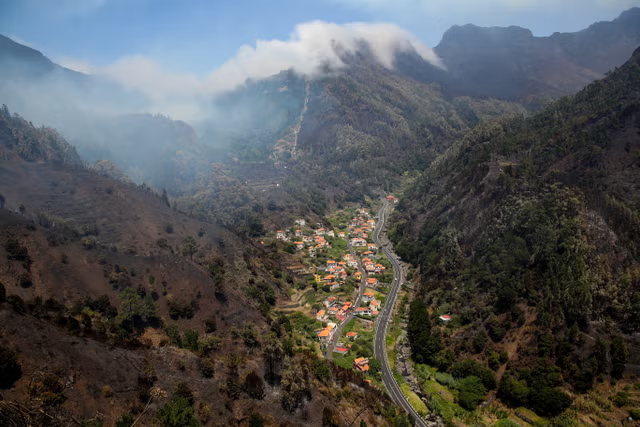Support truly
independent journalism
Support Now
Our mission is to deliver unbiased, fact-based reporting that holds power to account and exposes the truth.
Whether $5 or $50, every contribution counts.
Support us to deliver journalism without an agenda.

Louise Thomas
Editor
Indonesia’s legislature postponed ratifying changes to the election law amid massive protests on Thursday as demonstrators attempted to tear down the gates of the parliament building in Jakarta.
The proposed changes were seen as a move to strengthen the influence of outgoing president Joko Widodo, not least by allowing his 29-year-old son Kaesang Pangarep to run in the Central Java election in November and blocking a critic of his government from running for Jakarta governor.
The delay in ratification was due to the lack of quorum and it was uncertain if the changes would pass before registration for regional elections opened.
The attempt to change the law sparked widespread protests. The demonstrators accused the government of undermining democracy, leading to fears of a constitutional crisis.
“This is the peak of my disdain,” Afif Sidik, a 29-year-old teacher who joined the protest outside the parliament, told Reuters.
“This is a republic. It’s a democracy, but if its leadership is decided by one person, or an oligarch, we can’t accept that.”
Thousands of protesters demonstrated outside the parliament on Thursday. They displayed banners and props like a mock guillotine with the president’s face.
Presidential spokesperson Hasan Nasbi urged for calm even as some protesters threw rocks at the parliament building.
Protests were also held in other cities and police used tear gas to disperse demonstrators in Semarang, local media reported.
The proposed legal changes were meant to reverse a ruling by the constitutional court on Thursday that would, if enforced, disqualify the president’s son but let another popular candidate run in the forthcoming elections.
The changes would also prevent a prominent government critic, Anies Baswedan, from running for governor of capital Jakarta.

Mr Widodo claimed the proposed amendments were simply a part of the government’s “checks and balances”.
Titi Anggraini, an elections analyst at the University of Indonesia, told the BBC that the parliament’s move to reverse the court’s decision amounted to “constitutional insubordination”.
“This is a robbery of the constitution.”
Bivitri Susanti from the Jentera School of Law said that the constitutional court’s ruling was “final and binding”.
“It is not possible for the legislative body to violate the judiciary’s ruling. This is a power struggle.”
Additional reporting by agencies.
Disclaimer: The copyright of this article belongs to the original author. Reposting this article is solely for the purpose of information dissemination and does not constitute any investment advice. If there is any infringement, please contact us immediately. We will make corrections or deletions as necessary. Thank you.



